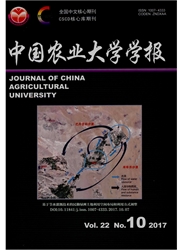

 中文摘要:
中文摘要:
为了解子女教育对农民城镇化意愿的影响,利用北京市郊区的调研数据,运用统计软件中的排序模型和“边际效应”(Marginal Effects,简称MFX)与“平均偏效应”(Average Partial Effects,简称APE)方法,将农民按是否有子女教育进行分类,进而对其进行城镇化意愿分层分析。实证结果表明:子女教育与农民城镇化意愿正相关,不同人群的异质性和需求取向的相异性均不同,APE值表明农民对空间布局、人居环境和社会经济的偏好次序存在明显差异。针对此问题,需要预先考虑人群结构和不同类别农民的需求取向,进而形成一个相对均衡的规划体系。
 英文摘要:
英文摘要:
By collecting interview data of villagers in Beijing suburban area,the model of ordered choice model and the method of Marginal Effects/Average Partial Effects are adopted to understand the influence of children's education on villagers* urbanization willingness. Factors on the villagers' whose children have or have not received education now willingness of urbanization are analyzed through stratification. The results indicate that the villagers' urbanization willingness is highly and positively correlated with his children's education status. The effects of heterogeneity differences of heterogeneity and demand orientation among different populations are of the opposite. APE values show that there are some significant differences in villagers' preference orderings for spatial layout,living environment and socioeconomic. In order to construct a relatively balanced town planning system, the different population structure and villagers* demand orientation should be considered.
 同期刊论文项目
同期刊论文项目
 同项目期刊论文
同项目期刊论文
 期刊信息
期刊信息
